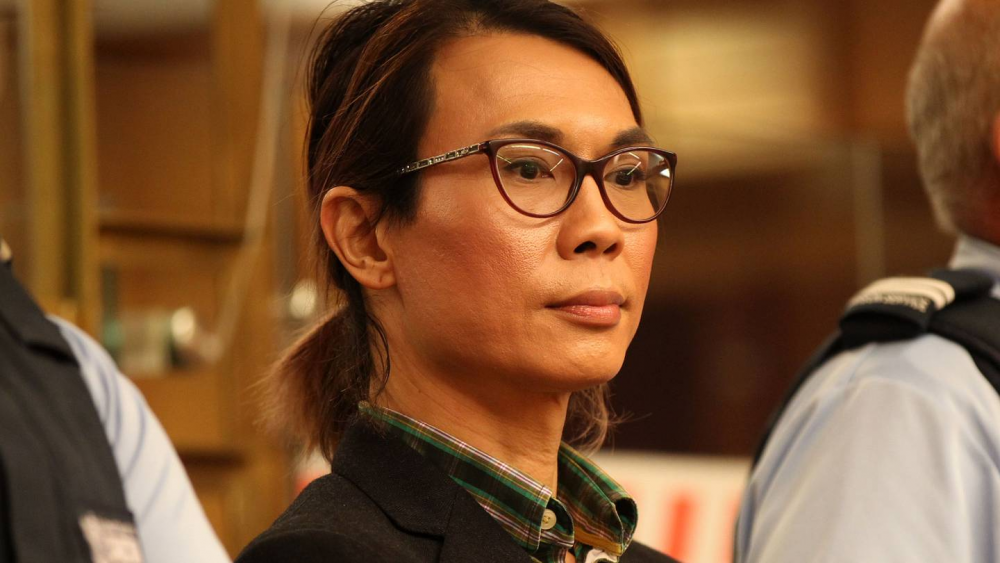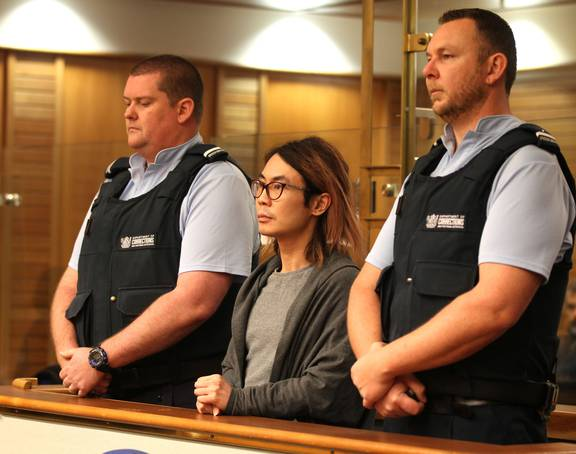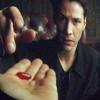Search the Community
Showing results for tags 'Patients'.
-
https://says.com/my/news/msian-doctor-found-guilty-of-sexually-assaulting-4-patients-in-nz-has-been-deported?fbclid=IwAR1MSOwPYLzORkAxlaY33dkdpUsvt0nsjWQDFCbPqSOSXxWfRX4ZcNzxefA M'sian Doctor Found Guilty Of Sexually Assaulting 4 Patients In NZ Has Been Deported Lim continues to deny the charges against her. By Jasmine Chea — 03 Aug 2022, 05:47 PM A Malaysian doctor who was found guilty of sexually assaulting four male patients at a clinic in Hastings, New Zealand, back in 2014 has been deported According to Stuff, David Kang Huat Lim was found guilty of stupefying four men with sedatives in order to sexually assault them. In what was described as an extreme abuse of trust between doctor and patient, Lim was slapped with five charges of sexual assault and was sentenced to five years of imprisonment at Tongariro Prison. The assaults were reported to have happened over eight months in 2014. All had allegedly occurred at The Doctors clinic, located in Hastings, where Lim was practicing. The 46-year-old former doctor is a Malaysian national but had been living in New Zealand for 10 years Lim, who is originally from Malaysia, was medically trained in Scotland. She previously worked at the Hawke's Bay Hospital's emergency department for three years before moving on to The Doctors clinic to practice. Her medical licence was revoked following her sexual assault charges. Lim currently identifies as female and goes by she/her pronouns. She is in the process of transitioning from male to female. Lim's stay in New Zealand has come to an end following the completion of her five-year prison sentence According to NZ Herald, due to her denial of the charges, she did not receive offence-focused treatment, which aims to reduce the risk of sex offenders repeating their crimes. Because she did not go through the psychological intervention program, the court decided to deny Lim's release from prison and she was deported back to Malaysia on 1 June. According to the parole board of New Zealand, Lim will not be allowed to return to New Zealand. The person she would live with in Malaysia is aware of the charges, but believes Lim is innocent.
- 41 replies
-
- 7
-

-
.png)
-
- semi-female
- doctor
-
(and 4 more)
Tagged with:
-
A woman in the United Arab Emirates (UAE) who was seriously injured in a car crash in 1991 has finally woken up from a 27-year-long coma. Munira Abdulla, then 32, had just picked up her 4-year-old son Omar from school when the car they were in collided with a school bus, reported local daily the National on Monday (Apr 22). While Omar was unharmed, Ms Abdulla, who had tried to protect her son from the impact, was left unconscious with a serious brain injury. Last year, Ms Abdulla, now 60, regained consciousness in a hospital room in Germany. “I never gave up on her because I always had a feeling that one day she will wake up,” said her 32-year-old son Omar Webair in an interview with the National. Ms Abdulla, who was taken to a local hospital after the accident, was later transferred to one in London where doctors diagnosed her to be in a minimally conscious state. She was then returned to the UAE where she was transferred several times due to insurance constraints. In 2017, Ms Abdulla was finally taken to a German hospital after the Crown Prince Court heard the family's story and gave them a grant. There, Ms Abdulla underwent surgery to treat her weakened limb muscles as well as physical therapy. Last June, Ms Abdulla was seen stirring in her bed when an argument broke out in her hospital room. “She was making strange sounds and I kept calling the doctors to examine her,” Mr Webair told the National. “They said everything was normal. “Then, three days later, I woke up to the sound of someone calling my name. “It was her. She was calling my name. I was flying with joy. For years I have dreamt of this moment, and my name was the first word she said.” Ms Abdulla is now receiving treatment in Abu Dhabi, where she is able to communicate “in a very reasonable manner”, said the hospital. “I shared her story to tell people not to lose hope on their loved ones,” Mr Webair said. “Don’t consider them dead when they are in such a state. “All those years, the doctors told me she was a hopeless case and that there was no point of the treatment I was seeking for her, but whenever in doubt I put myself in her place and did whatever I could to improve her condition.” Read more at https://www.channelnewsasia.com/news/world/uae-woman-wakes-up-from-27-year-coma-after-car-crash-report-11472950 Miracle story to kick start this morning. In Singapore, this may not even be remotely possible no thanks to expensive healthcare bills. How comprehensive or rather how limited is our life insurance for coma patients? How many of us can afford to keep our loved ones alive for so long, with or without hopes of them even waking up? Then there are other deciding factors... What are the moral implications to deciding when to pull the plug for a coma patient whom is showing minimal signs of consciousness, on life support etc? Who is going to decide quality of life vs quantity of life? When is the right time to pull the plug? Is there ever a right time? Do insurance companies put pressure on hospitals or even doctors? This is a miracle case. It has given hope to families out there to keep the faith and not give up on their loved ones. But food for thought, how many of us would have been able to do the same? At 60 years old, she still has many good years to catch up on lost time with her family.
-
Hope all are clear! National University Hospital recalls 178 children for TB tests The first of the 178 patients were at NUH (above) for screening on Tuesday. The children will have a chest X-ray to check for TB, and blood tests if aged five or older, and/or skin tests to see if they have the bug latent in them. The National University Hospital (NUH) is recalling 178 paediatric patients - including 131 under the age of two years - who had been cared for by a nurse now confirmed to have tuberculosis. They include 34 children who have received a transplanted organ. These children are on immunosuppression drugs and therefore at higher risk than normal children. Associate Professor Daniel Goh, head of paediatrics at NUH, said the risk of any of the children contracting TB from the nurse is "very low", especially as she had donned a mask while working. But the hospital is not taking any chances and is recalling patients who had been in ward 47 since July. The nurse was treated at a GP clinic for her cough in July, but despite having a chest X-ray, was not diagnosed with TB. She was given antibiotics and seemed to get better. NO CAUSE FOR ANGER I would be angry if the hospital did not do anything and the patients started getting TB. But they are doing something. MADAM CRYSTAL LIM, 28, whose son was in ward 47 for three weeks in August. Her son had a liver transplant in October last year, but was back in hospital for treatment for a 3cm abscess on his buttocks. The doctor had explained that because of his transplant, he was at a higher risk. Madam Lim is worried, but not angry. How the disease is spread Tuberculosis is an airborne disease transmitted through fine respiratory droplets from an infected person. It usually affects the lungs but can also hit other parts of the body such as the brain, lymph nodes, kidneys, bones and joints. Persons with TB are most likely to spread it to people who have close and prolonged contact with them, such as family members, friends and colleagues. It is not spread through sharing drinks, utensils, cigarettes or kissing. There were 1,454 new TB cases among residents here last year, 34 more than in 2013. In the past 30 years, Singapore had more than 1,000 new cases a year. According to the Health Ministry, there has been a resurgence of TB cases in recent years. TB can be cured with a combination of different drugs taken over six to nine months. However, if the treatment is incomplete, TB germs may develop a resistance to the drugs. Second-line TB drugs must then be taken for a longer period, but chances of a cure will be significantly reduced. Tan Weizhen But the cough persisted, and last Wednesday she sought treatment again and was given a CT scan which showed a possible TB patch in her lung the size of a 50-cent coin. She told the hospital on the same day and was tested for TB. Last Friday, the results confirmed she had TB. Fortunately, it is the normal and not multi-drug-resistant variety. Dr Goh said his team spent the weekend trawling through the patient database to identify patients who might have had long exposure to her while warded, as well as those who are deemed at higher risk because of their age or disease. Mr Joe Sim, NUH's chief executive officer, said: "We fully understand the anxiety of the parents and are taking this matter seriously." Professor Paul Tambyah , a senior infectious disease expert at NUH, said TB transmission depends on the amount of exposure, the bacterial load of the carrier and the individual's immune system. He said there is a one in 10 chance of people getting the bug if a person with TB coughs at them for two hours. Of those who get the bacteria, one in 10 would get the disease in his lifetime. This doubles for those with low immunity. The first patients were at NUH for screening on Tuesday and more will be screened over the coming weeks. They will have a chest X-ray to check for TB, and blood tests if aged five or older, and/or skin tests to see if they have the bug latent in them. Any child diagnosed to have caught the latent bug will be given treatment, which has a greater than 90 per cent chance of preventing TB. For those with TB, chances of a cure are very high with treatment. Madam Crystal Lim, 28, whose two-year-old son was in ward 47 for three weeks in August, was shocked when his doctor called to ask her to bring her son back for tests. Her son had a liver transplant in October last year, but was back in hospital for treatment for a 3cm abscess on his buttocks. The doctor had explained that because of his transplant, he was at a higher risk. She is worried, but not angry. "I would be angry if the hospital did not do anything and the patients started getting TB. But they are doing something," she said. As for the nurse, Madam Lim said: "She did not do it purposely. All the nurses look after the children very well. I hope the doctors can help her get well." The nurse, who is on medical leave for two weeks, will be able to resume work as being on treatment means she is not contagious. Her colleagues in the ward have all been tested and found negative. So far this year, 1,252 new TB cases have been diagnosed in Singapore.
-
hospital is a place where many people will lost control of their temper, not only to the healthcare staff but also their own family members... but i hope the hospital has rules to throw out those inconsiderate people
-
22 patients in SGH renal ward infected with hepatitis C; 4 patients have died The Singapore General Hospital compound.PHOTO: ST FILE PUBLISHED 23 MIN AGO UPDATED 8 MIN AGO Lee Min Kok SINGAPORE - The Singapore General Hospital (SGH) has apologised for an outbreak of the hepatitis C virus in one of its renal wards, which has led to 22 patients being infected with the virus. Of the 22, four - who were also ill with other serious conditions - have since died. At a media briefing on Tuesday (Oct 6) afternoon, the hospital said it had noted an increased frequency of hepatitis C virus infections in early June in the ward. It prompted SGH to step up urgent checks for the virus in patients with abnormal liver function test results staying in the same ward. Investigations into the cause of the infections are ongoing, but initial investigations have indicated that the source could be attributed to "intravenous (IV) injectable agents". Hepatitis C, which causes liver chronic cancer, is mainly transmitted through blood-to-blood contact associated with IV drug use, poorly sterilised equipment and transfusions. About 0.3 per cent of the general population in Singapore suffer from it. SGH chief executive officer Ang Chong Lye said: "We would like to apologise unreservedly for the grief, pain and anguish this has caused our patients and their families. "Patient safety is non-negotiable. What happens to our patients is always our responsibility. We will spare no effort in reviewing our processes and examining all possible sources of infection to prevent recurrence." Prof Ang added that SGH is in touch with the affected patient and their families, and will "continue to provide full support and the appropriate care in managing their condition". All 22 patients were admitted and stayed in the newly-renovated Ward 67 between April and June this year. Ward 64A, the original renal ward, was under renovation. They were all suffering from some form of renal disease, with the majority having undergone renal transplants. Professor Fong Kok Yong, chairman of the SGH medical board, stressed that while there has been no conclusive evidence to what caused the infections, the hospital had taken "aggressive" steps to rectify any shortcomings detected during the ongoing investigations. The hospital's renal care team, including doctors and nurses, have undergone hepatitis C screening. The screening will also be extended to other doctors who covered the ward during the affected period. Meanwhile, SGH has been contacting patients who were admitted to Wards 64A and 67 from the start of the year to June for screening. No new hepatitis C cases related to admission outside the affected April-June period have been identified.
- 458 replies
-
- sgh renal ward
- renal ward
-
(and 7 more)
Tagged with:
-
From ST Forum: http://www.straitstimes.com/premium/forum-...better-20121120 Father-in-law's death: Handle patients better Published on Nov 20, 2012 AT ABOUT 5am on Oct 26, my husband and I accompanied my father-in-law, who had fallen and hurt his forehead and mouth, to the Singapore General Hospital's accident and emergency department, where he was placed in an observation ward. We waited until 7am and when no one updated us on his condition, we sought permission to see him. When we did, his right eye had become swollen. We were told that the staff would be stitching up his forehead wound to stop the bleeding, and admission would be done when a bed became available. At around 11.50am, he was admitted. Up to then, nothing had been done for him except the placement of a drip and stitching of his forehead wound. The nurses told us that they had arranged a CT scan for him the next day, as Oct 26 was a public holiday and the relevant staff were not working. The next day, after the scan was done, the neurologists informed us there were multiple injuries to my father-in-law's skull, and bleeding within. We were told that he would be in a coma within 24 hours. Due to his age and sickness, no surgery was suggested. My father-in-law died on Oct 29. There is much room for improvement in how patients are handled. Is it the norm for CT scan departments to be closed on public holidays? Could my father-in-law's death been prevented if the scan had been done on the same day, and corrective action taken to stop the bleeding? Adeline Lim (Madam)
-
April 9, 2008 Dementia patients to get ID cards Special card with contact details could help lost patients return to their families By Theresa Tan DEMENTIA patients will soon be issued with special identity cards so members of the public will be able to contact their families if these individuals are found lost or wandering. The card, to be issued through the Alzheimer's Disease Association here, will debut in the second half of the year. It will carry the patient's name, language spoken and his or her family's contact numbers. Other critical information, such as drug allergies, will also be included. Dementia is a degenerative brain condition marked by memory lapses. As the disease worsens, patients lose the ability to care for themselves. They may require help even in daily routines such as eating and going to the toilet. Alzheimer's disease is the most common form of dementia. About 20,000 people are afflicted with dementia here; by 2020, the number is expected to rise to 50,000. National Council of Social Service chief executive Ang Bee Lian said it is common for dementia patients to wander from their homes and become lost. Asked how useful the card will be if dementia patients left home without it, she said idea is not foolproof but can be useful if patients are made to pin or hang the card on a lanyard around their neck before outings. Sales executive Eleen Ng, 40, is familiar with the anxiety of having a loved one go missing. Her 70-year-old mother, who has dementia, has lost her way 'numerous times' and even ended up at a police station after she was found wandering the streets. 'I used to tear my hair out and panic each time mum went missing. She doesn't even know how to answer her mobile phone when it rings,' said MadamNg, adding that her mother is no longer allowed to go out on her own. The identity card is not the only such document here. More than 7,000 similar ones have been issued to the disabled, such as the intellectually disabled, by various charities here, MsAng noted. http://www.straitstimes.com/Free/Story/STIStory_225262.html We do not tag criminals like rapists or even pervert stealing undies for the safety of the public some1 obviously felt it is good we tag dementia patient. IMO this is a violation of human rights, because it will not end there once it started. How would you feel if some1 you know is tagged a HIV patient like a dog tag? Are we gg but back to medieval days?
-
Wednesday April 23, 2008 Star fruit can be poisonous for kidney patients By AMANDA LEE KUALA LUMPUR: All it takes is one fruit or 100ml of its juice and the ordinarily harmless star fruit becomes poison in a matter of hours for kidney patients. University Malaya Medical Centre consultant nephrologist Prof Dr Tan Si-Yen said this was what had happened to Tang Gon Seang in China. The 66-year-old, who has been suffering from a kidney ailment, was in Shenzhen visiting his son when fell into a coma on March 29 after eating star fruits.










